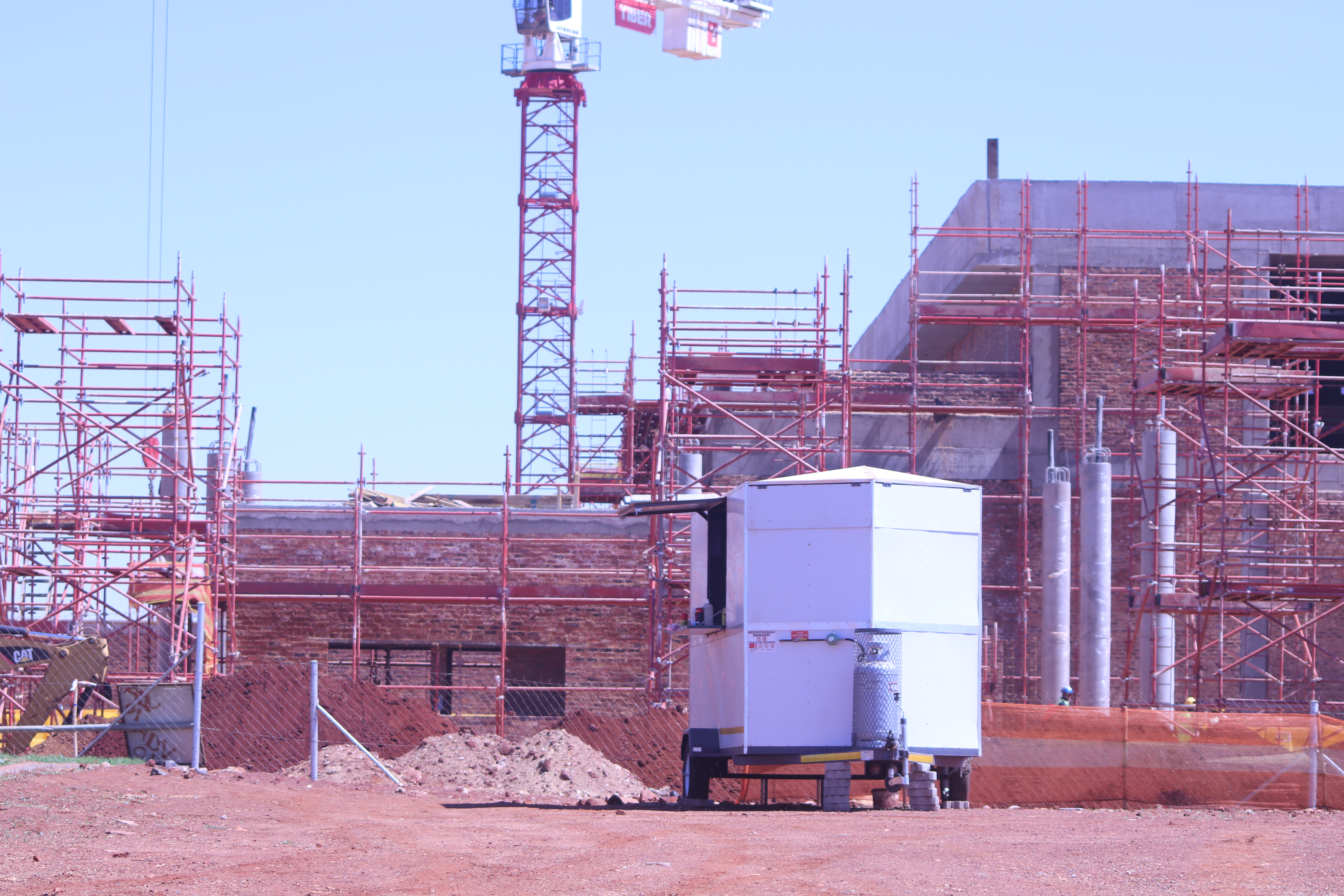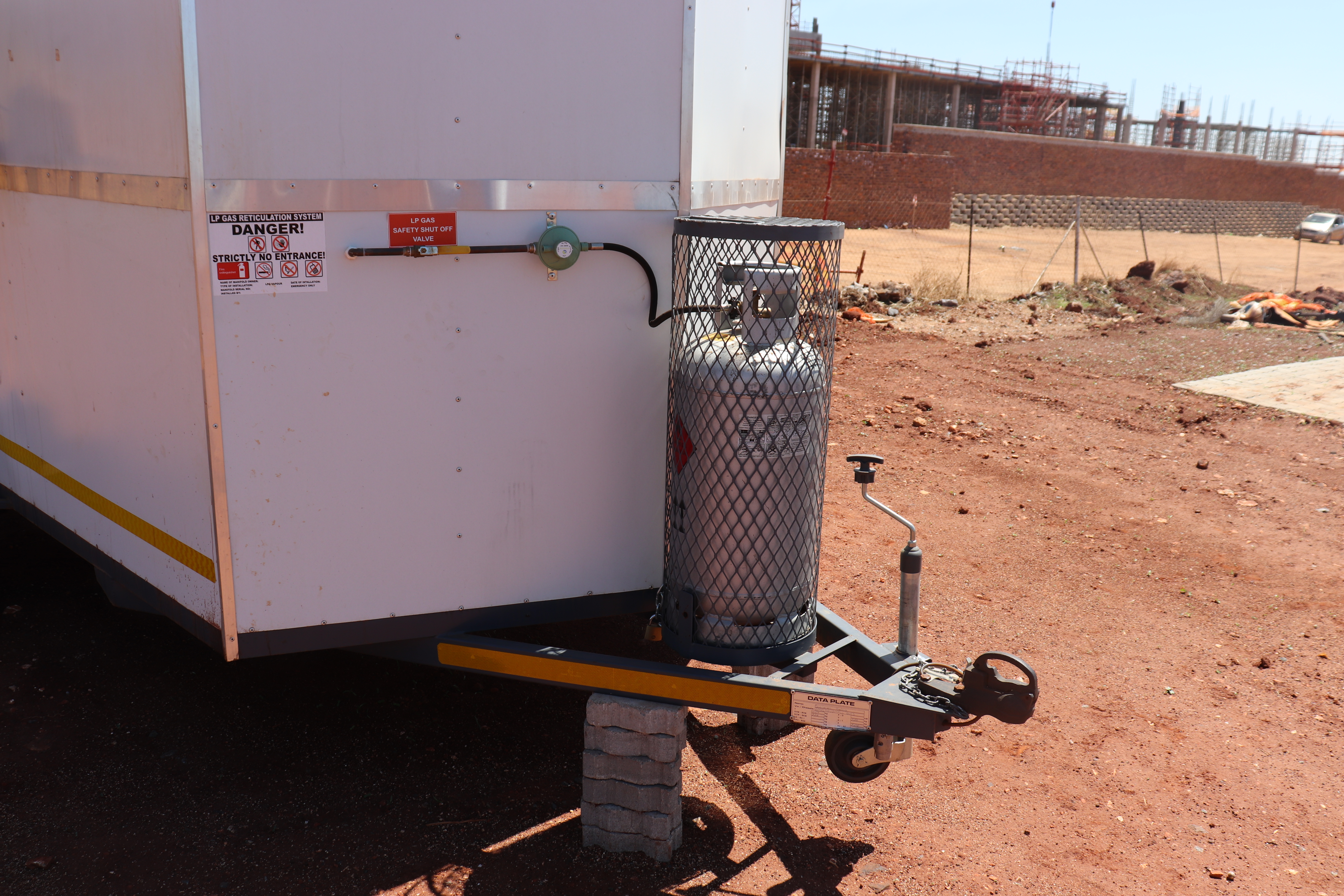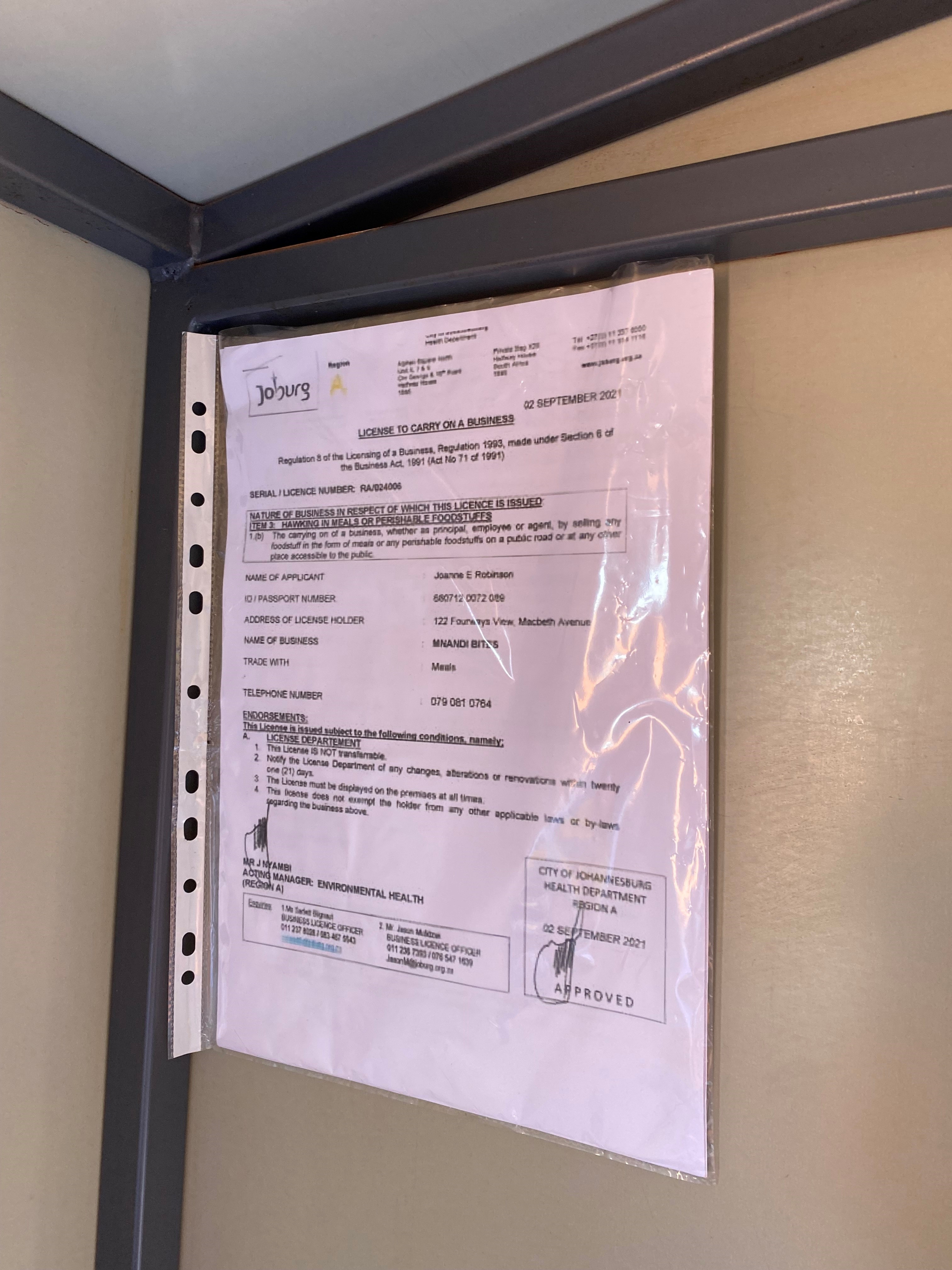With COVID-19 restrictions restricting us to take-aways and deliveries, it was interesting to observe an increase in the number of mobile food outlets to counter the limited trade opportunities. This coupled with many companies laying people off, resulted in people looking for ways to supplement income.
Fortunately, this was NOT the reason Joanne Robinson and Bessie Mathonsi decided to change tackle a mobile food business. Both ladies were previously employed at a larger catering division of a national banking institution in South Africa. During pre-COVID 19 days, the catering unit fed 6000 people daily in a large number of locations around the country.
They decided to take the collective 50 years of catering experience use this to start a business focusing on feeding construction workers. Bessie had previously retired and was already cooking for her community in Ivory Park, a distinct advantage in getting the community acceptance of their food truck.
And what a ride it has been. We chatted to Joanne and Bessie about their experiences to help you avoid some of the pitfalls they encountered.
1 Do your homework
When looking at the feasibility of the business, make sure you understand your target market. It is likely that you will have competition in the area and you do need to understand the pricing constraints of your target market. This is linked to their menu preferences which could be seasonal. You should research this information thoroughly to ensure that you do not land up losing money.
“Make sure you do your research – and then do it again”
– this was Joanne’s advice.“I developed a business plan
but there were so many things I did not factor in”.
2 Know the legal requirements
Don’t forget that this is a food business and thus by law, you are required to have a certificate of acceptability for your caravan/food truck.
We chatted to a senior EHP about the legal requirements.
“This is, unfortunately, a complicated one as it differs from area to area depending on the informal traders' policies and by-laws for each Municipality.
What should happen is that an applicant completes an application form and we conduct the inspection then issue the COA if the trailer complies. However, this does not give them permission to trade. If they are trading at a market, they are able to do so with a COA, however, City of Joburg sometimes requests their own COA and will not accept one issued in another municipality so check this out.
If the applicant wants to trade on the pavement they will need to apply for permission to do so as it is Council property. This may take the form of a Hawker's license, an Informal Food Traders Permit, or any other type of permission depending on one municipality to another. In the case of Ekurhuleni as an example, the application can be obtained from Local Economic development and the main role player is Metro police who have designated areas where traders are allowed.
Please take special note that the Business Act 71 of 1991 states in Schedule 2 that all persons hawking meals or perishable foodstuffs need a Business Licence. In Ekurhuleni this is managed by the Customer Care Centres.”
Our EHP encourages informal traders to contact their local EHP and be prepared for a lot of red tape; being sent from pillar to post and general frustration. You have been warned.
You may also have to consider health and safety permits, licenses for the selling of liquor and tobacco, as well as zoning permits, to operate in certain locations.

Remember for your certificate of acceptability, you will be required to provide information regarding the nature and type of food being handled on the premises, the nature of the handling (e.g. preparation, packing, processing, etc), and certain other information. Remember your caravan is classified as a premise.
The law also requires all home and business owners who have liquid gas installed in their home or business to obtain a gas compliance certificate, also known as a Gas Certificate of Conformity. This is for the safety of your staff and your customer. The last thing you need is for your business to go BOOM.

Joanne reported a significant amount of frustration at the process of obtaining the COA. She did report being pushed from pillar to post until she contacted her ward councillor to the right process and contact numbers. The important lesson here is do not leave this to the last minute.
You will need to take your unit for a physical inspection
before your COA will be issued.
3 Your chosen site might require additional permits
 |
You cannot simply pop your unit on a building site. You require a permit from the site manager or the relevant municipality. Similarly, if you would like to work at an event, you will require a permit/permission for the organiser. You can expect them to ask for your legal documents in all cases.
Make sure you do not fall foul of the law. The last thing you want is for your unit to be impounded due to a technicality.
Lastly, display your COA to the public.
It gives them confidence in buying your food.
|






